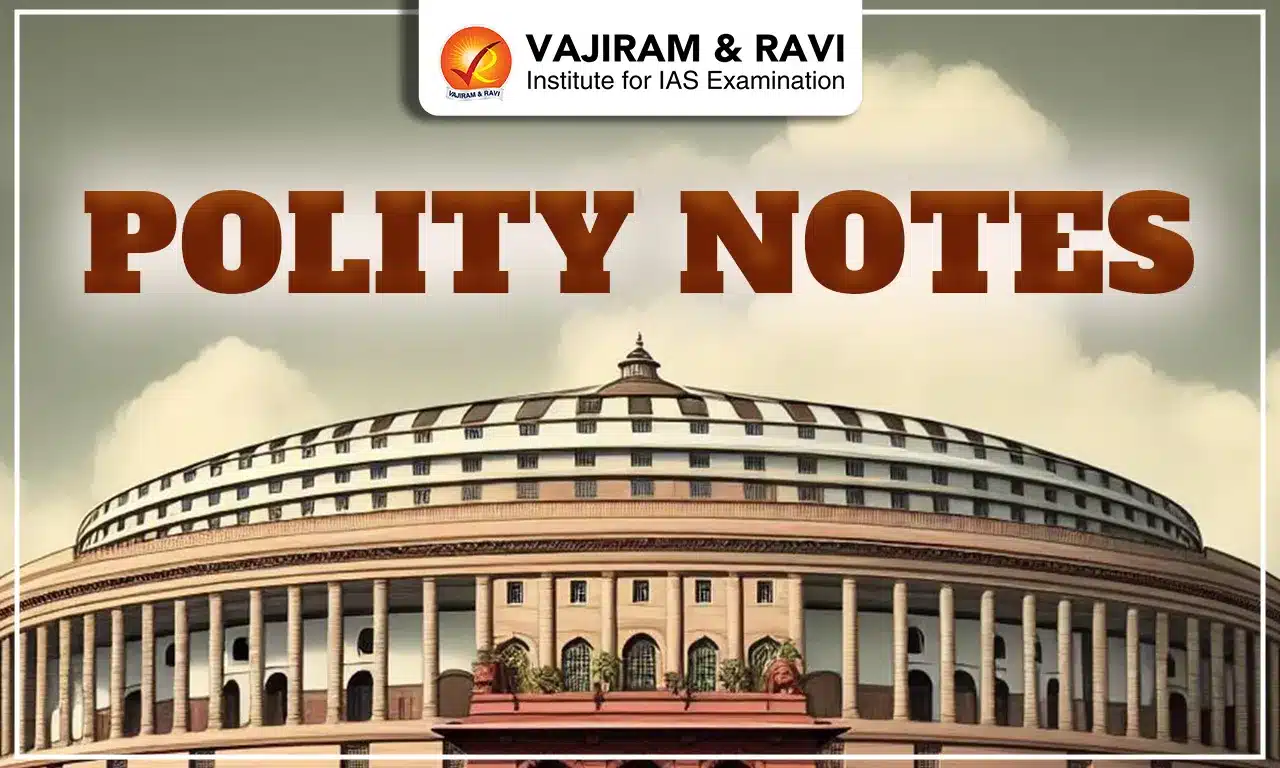Waqf Amendment Act 2025, also known as UMEED Act, passed in the Parliament in April 2025, proposes significant changes to the governance and management of Waqf properties in India. This legislation seeks to amend the Waqf Act of 1995, aiming to enhance transparency, accountability, and efficiency in the administration of Waqf properties while addressing long-standing issues within the system.
Originally introduced in 2024, the bill underwent scrutiny by a Joint Parliamentary Committee (JPC). Following an extensive review process and public consultations, the UMEED Bill (Unified Management Empowerment Efficiency and Development) was passed in Parliament. After the Presidential assent, it has become a law.
What is a Waqf Property?
A Waqf is a property donated by Muslims for a specific religious, charitable, or private purpose. Ownership of the property is considered to belong to God, while its benefits are directed to the specified purposes.
- Establishment: A Waqf can be established through a written deed, legal instrument, or orally.
- Use and Permanence: A property may be recognised as Waqf if it has been used for religious or charitable purposes over an extended period.
- Irrevocability: Once a property is designated as waqf, it cannot be reclaimed or altered by the donor.
- However, not all Islamic countries have Waqf properties. Countries like Turkey, Libya, Egypt, Sudan, Lebanon, Syria, Jordan, Tunisia, and Iraq lack Waqfs.
- In contrast, India has Waqf Boards as the largest urban landowners, with legal protection under an Act.
- Waqf Boards in India oversee approximately 8.7 lakh properties covering around 9.4 lakh acres of land, with an estimated worth of ₹1.2 lakh crore.
- Further, Waqf Board is the largest landowner in India after the Armed Forces and the Indian Railways.
Origin of the Concept of Waqf
Waqf has existed in India since the early days of the Delhi Sultanate. Sultan Muizuddin Sam Ghaor dedicated two villages to Multan's Jama Masjid and appointed Shaikhul Islam as its administrator. As the Delhi Sultanate and subsequent Islamic dynasties flourished in India, the number of Waqf properties grew.
- British Raj Controversy: In the late 19th century, the Privy Council criticised Waqf as "perpetuity of the worst kind" and declared it invalid. However, the Mussalman Waqf Validating Act of 1913 upheld the Waqf system in India, despite British criticism.
- Waqf Act, 1954: After independence, the Waqf Act of 1954 was introduced to regulate and manage Waqf properties across India. It established the Central Waqf Council of India (established in 1964 as a statutory body) to oversee the work under various state Waqf boards, established under provisions of Section 9(1) of the Waqf Act, 1954.
- Waqf Act, 1995: The Waqf Act of 1995 was introduced to strengthen the management and regulation of Waqf properties (religious endowments) in India. This legislation granted overriding authority over other property laws, ensuring that Waqf assets were administered primarily under Islamic law while enhancing protections against encroachments and mismanagement.
Waqf Act 1995
The Waqf Act, enacted in 1995, governs the management and administration of Waqf properties in India, which are properties dedicated for religious, charitable, or pious purposes under Islamic law. The Act mandates the establishment of Waqf Boards at the state level to oversee these properties. Following are the Key Provisions of the Waqf Act, 1995:
- Role of Waqf Bodies: The Act outlines the roles and responsibilities of the Waqf Council, State Waqf Boards, and the Chief Executive Officer, along with the duties of a Mutawalli (caretaker of Waqf properties).
- Waqf Tribunals: It also defines the authority and limitations of Waqf Tribunals, which function as substitutes for civil courts within their jurisdiction.
- Power of Civil Court: These tribunals hold the same powers and responsibilities as civil courts under the Code of Civil Procedure, 1908.
- Binding Power: Additionally, their decisions are final and binding, and no civil court is permitted to entertain lawsuits or legal disputes related to matters under the tribunal’s purview.
Waqf Amendment Act 2025
Waqf Amendment Act, 2025, renamed as the UMEED Act, aims to address several challenges in the administration and management of Waqf properties. It seeks to modernise the framework governing Waqf properties, introduce technology-driven management, address complexities, and ensure transparency. Reintroduced and passed in both houses of Parliament in April 2025, the UMEED Act aims to streamline administrative processes and ensure that Waqf resources are optimally utilised for community development and welfare.
Waqf Amendment Act 2025 Provisions, Key Changes
Waqf Amendment Act 2025 introduces several pivotal changes to enhance the management and inclusivity of waqf properties in India. The key amendments introduced in the Waqf Amendment Act 2025 are as follows:
- Renamed as Umeed: The Act has been renamed as the UMEED Act, which stands for ‘Unified Management Empowerment Efficiency and Development’
- Inclusion of Non-Muslim Members: To enhance inclusivity, the Waqf Amendment Act 2025 introduces provisions for the inclusion of non-Muslim representatives in central and state Waqf boards.
- ‘Waqf By User’ Removed: The Waqf Amendment Act eliminates the 'Waqf by user' provision, which previously allowed properties to be designated as Waqf solely based on their long-term use for religious activities.
- However, according to the Waqf Amendment Act 2025, all waqf-by-user properties registered before the Act's enactment will retain their status, except for those involved in disputes with the government.
- Removal of Section 40: The Waqf Amendment Act 2025 seeks to abolish Section 40 of the Waqf Act, a provision criticised as overly restrictive, as it granted the Waqf Board the authority to designate any property as Waqf land.
- Trusts Excluded from Waqf: Waqf Amendment Act 2025 establishes a legal separation between trusts and Waqfs, ensuring that trusts created by Muslims, whether before or after the Act's enactment, do not fall under Waqf regulations if they are governed by other statutory provisions related to public charities.
- Eligibility for Waqf Dedication: Only practicing Muslims for at least five years will be allowed to dedicate property to Waqf, reinstating the pre-2013 regulations.
- Protection of Inheritance Rights: The Waqf Amendment Act 2025 ensures that women and children must receive their rightful inheritance before any property is declared as Waqf, with special safeguards for widows, divorced women, and orphans.
- Application of Limitation Act, 1963: To minimise prolonged legal disputes, the Act introduces the applicability of the Limitation Act, 1963, to Waqf properties from the date the amendment comes into effect.
- Protection of Tribal Lands: The Waqf Amendment Act 2025 explicitly prohibits the establishment of Waqf on lands falling under the purview of Schedules V and VI of the Constitution to safeguard the rights of tribal communities.
- Composition of Waqf Tribunal: While the initial draft proposed reducing the Waqf Tribunal to two members, the revised Waqf Amendment Act retains a three-member composition based on the recommendation of the Joint Parliamentary Committee (JPC).
- Investigation of Government Properties: The Waqf Amendment Act 2025 mandates that any government land or property claimed as Waqf will be investigated by an officer of a rank higher than that of a collector, ensuring a more transparent and authoritative review process.
- Dispute Resolution: In cases of property disputes, a senior government official will have the final authority to determine whether a property belongs to Waqf or the government, replacing the existing Waqf tribunals.
- Appeal Mechanism: Furthermore, the Waqf Amendment Act 2025 introduces a provision allowing appeals to the High Court against Waqf Tribunal decisions, addressing the current gap in which the High Court is granted only limited revisional powers.
- Enhanced Transparency: The Waqf Amendment Act 2025 emphasises better governance of Waqf properties by requiring mutawallis (Waqf property managers) to register all property details on a centralised portal within six months.
- Financial Reforms: To provide Waqf institutions with greater financial flexibility, the Act reduces their mandatory contribution to Waqf boards from 7% to 5%, allowing more funds to be directed toward charitable activities.
- Income Audit: Additionally, institutions generating an annual income of over ₹1 lakh will undergo government-mandated audits to ensure financial transparency.
Waqf Amendment Act 2025 Significance
The Waqf Amendment Act 2025 is a significant legislative proposal aimed at modernising and improving the management of Waqf properties in India. It is significant for the following reasons:
- Transparency and Accountability: Enhances oversight and regulations to prevent abuse and mismanagement of Waqf properties.
- Streamlined Administration: Updates processes and uses technology to improve record-keeping and reduce bureaucratic delays.
- Protection of Properties: Introduces stricter penalties and increases Waqf Board powers to prevent encroachment and illegal transfers.
- Inclusion and Diversity: Mandates more women and non-Muslims on Waqf Boards to promote diversity and community representation.
- Addressing Historical Issues: Introduces new regulations to tackle corruption and inefficiency in Waqf property management.
Waqf Amendment Act 2025 Criticisms
The Waqf (Amendment) Act, 2025, has sparked significant controversy and criticism since its introduction in the Lok Sabha. Many view it as an attempt to undermine the autonomy of the Muslim community over its religious affairs:
- Infringement on Religious Rights: Critics argue that the Act infringes on minorities' constitutional rights, particularly religious freedom under Articles 14, 25, 26, and 29.
- The mandatory inclusion of non-Muslims on Waqf boards is seen as interfering with the community’s management of its religious properties.
- Increased Government Control: The Act centralises control by granting significant powers to state authorities over Waqf properties and disputes. This shift is viewed as bureaucratic overreach, potentially causing delays and legal challenges.
- Lack of Community Consultation: The Act has been criticised for lacking adequate consultation with Muslim stakeholders, raising concerns about its legitimacy and acceptance within the community.
- Exclusion of Historical Context: The Act removes provisions for recognising "Waqf by user," which could jeopardise properties historically used for Waqf purposes without formal documentation.
- Potential for Increased Disputes: Removing Waqf Tribunal authority and transferring property determination to district collectors may lead to more disputes and complicate the resolution process.
- Concerns Over Non-Muslim Representation: The requirement for non-Muslim members on Waqf boards is opposed by critics who argue that such representation may undermine the boards' integrity due to a lack of understanding of Islamic law.
Last updated on February, 2026
→ UPSC Notification 2026 is now out on the official website at upsconline.nic.in.
→ UPSC IFoS Notification 2026 is now out on the official website at upsconline.nic.in.
→ UPSC Calendar 2026 has been released.
→ Check out the latest UPSC Syllabus 2026 here.
→ Join Vajiram & Ravi’s Interview Guidance Programme for expert help to crack your final UPSC stage.
→ UPSC Mains Result 2025 is now out.
→ UPSC Prelims 2026 will be conducted on 24th May, 2026 & UPSC Mains 2026 will be conducted on 21st August 2026.
→ The UPSC Selection Process is of 3 stages-Prelims, Mains and Interview.
→ Prepare effectively with Vajiram & Ravi’s UPSC Prelims Test Series 2026 featuring full-length mock tests, detailed solutions, and performance analysis.
→ Enroll in Vajiram & Ravi’s UPSC Mains Test Series 2026 for structured answer writing practice, expert evaluation, and exam-oriented feedback.
→ Join Vajiram & Ravi’s Best UPSC Mentorship Program for personalized guidance, strategy planning, and one-to-one support from experienced mentors.
→ UPSC Result 2024 is released with latest UPSC Marksheet 2024. Check Now!
→ UPSC Toppers List 2024 is released now. Shakti Dubey is UPSC AIR 1 2024 Topper.
→ Also check Best UPSC Coaching in India
Waqf Amendment Act 2025 FAQs
Q1. What is the Waqf Amendment Act 2025?+
Q2. What is Section 40 of the Waqf Act?+
Q3. Can Waqf property be sold?+
Q4. What exactly is the Waqf Act?+
Q5. What does Waqf stand for?+
Tags: quest waqf amendment act 2025 waqf ammedment bill 2025


















